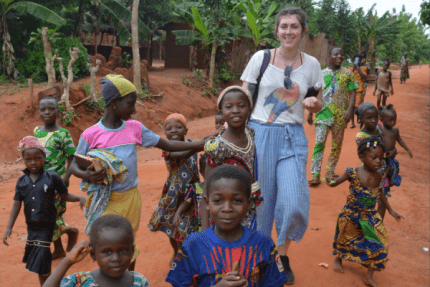
After spending a week in Benin on a LIFE Team Vision Trip with Global Aid Network (GAiN), Rachel Botma had visited enough villages to see the contrast between communities with access to clean water and those without.
“Just to see the enormous impact that having clean water has on a community was really something. You could really tell the difference between the communities with and without. Not just wells, but churches, too. There seemed to be so much more life, joy and vigour at the minimum.”
It was back in March 2019 that Rachel, along with her mother and four other team members, joined GAiN to Benin to see the work that is being done on the field through the Water for Life Initiative program.
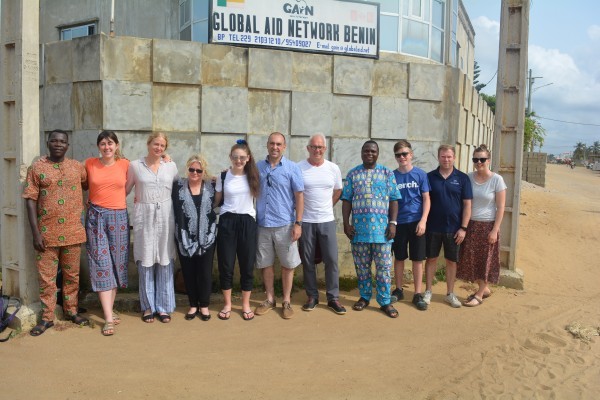
“I have been wanting to get involved in some kind of humanitarian project or volunteer for an NGO for quite a while but never found the right opportunity for me,” Rachel, explained. “Clean water and access to clean water is something that is near and dear to me; something I have been quite passionate about for some time. When I heard about the work that GAiN was doing, [providing] wells for underserved communities and villages, it was something that I knew I wanted to get involved with.”
With this being her first ever trip to Africa, and first trip to a developing country, Rachel signed up with no expectations. She quickly found herself shocked, but says it was a necessary shock.
“We pretty much jumped right into seeing the villages, which I think was really great because it jump-started a lot of powerful conversations and a lot of brainstorming. It was really wonderful for me to pick the brains and hear others pick the brains of some movers and shakers in the humanitarian space. It was quite inspirational for me.”
She recalled the first village they visited, Guede Codji, which was the first village to receive a deep-capped water well from GAiN in 2005.

The team learned about how a lack of clean water exacerbates gender inequality in places like Benin, where women and girls have to give up educational and career opportunities because they are tasked with fetching water for the family. In places where a water source is a few kilometres away, women are often put in danger situations must risk their safety to get water that is contaminated.
“Often these women get sexually assaulted on their journeys for water. That to me was such a horrible reality because they don’t have a choice and they have to put themselves in jeopardy every single day.”
An encounter with a local teenage girl and her father really stuck with her and highlighted the gender inequality issue even more.
“Another conversation that really stood out to me as a huge cultural issue is just how much the girls are expected to work, and how the men just don’t see a problem with it. The most extreme situation we saw was with this 16 year-old girl, Clarice, and her father. When I first saw Clarice, I said to my mother, ‘Wow, that young girl must be nine months pregnant with twins.’ Turns out, she has sclerosis of the liver.”
There was another team member on the trip, named Abel, who happened to be a doctor and was able to talk to Clarice’s father about her medical history. It was her second time developing the condition. Abel advised Clarice to take it easy, telling her father not to let her carry anything heavy and to send her to a doctor. While Clarice and her father seemed to understand and agree, Rachel was very disappointed when she saw that not more than 15 minutes later, Clarice was carrying large pails of water over her head as her father watched on his bicycle.
“The point of this story is to show just what a woman or girl must endure without say, the expectations of them, their lack of rights, and also dignity,” Rachel explained.
Not only did Rachel witness gender inequality in the field, she also saw what the reality was like for villages without a clean water source versus villages with wells.
“One thing that really struck home for me was seeing the water source of one of the villages, which they called a river but was nothing more than a stagnant swamp — smell included. During our time there, we got to see a well constructed and become operational for that village. [It’s] crazy to think [that] what we take for granted, something as simple as water, can have such a huge impact.”
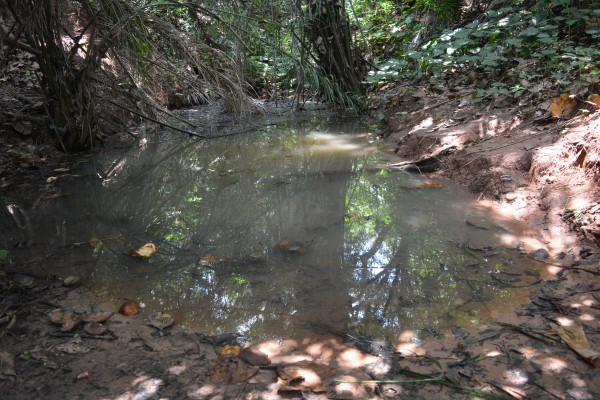
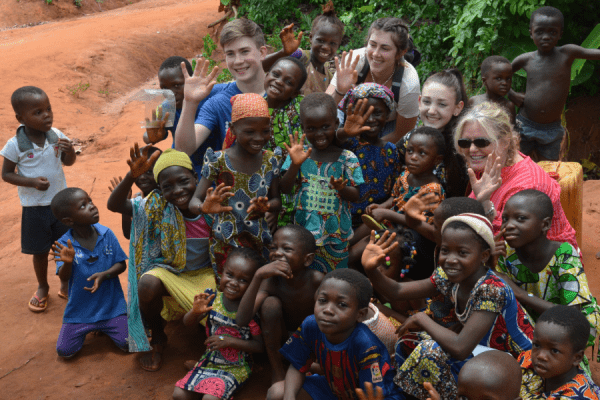
She observed that the impact of clean water was truly evident in the joy of the children.
“I noticed in the communities that had [deep-capped water] wells, the children were acting like children. They were silly and playful like children should be. In the villages without wells, and especially in the villages with a lot of voodoo (which you could really feel a dark, heavy spirit), the children seemed so lifeless. No emotion; no reaction to anything. I mean, comparing the two is almost a day and night difference.”
Although it was only a little over a week long, the trip provided Rachel with multiple learning opportunities, whether it was through speaking with villagers or GAiN staff from Canada or Benin.
“It was really encouraging to meet the GAiN staff. I mean, you could feel the blessing in the GAiN house, radiating off of the staff.”
The first full day consisted of a staff meeting, giving the team an opportunity to meet most of the staff, hear their testimonies and learn about the work that they do. They had the opportunity to dance and sing together and hear a message from Patrice Lavagnon, GAiN Benin country manager, and Ray Sawatsky, GAiN’s CEO and Executive Director.
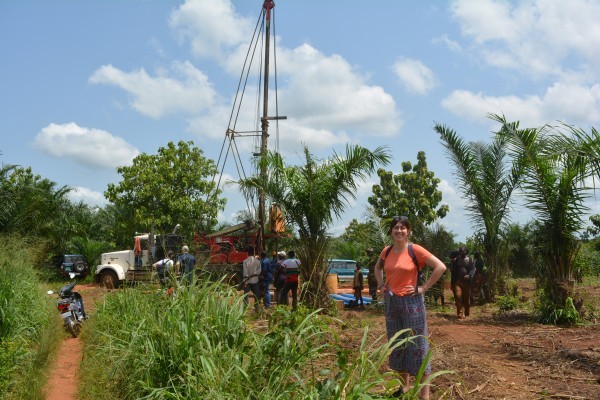

“We were able to see the community that has been built around GAiN. It was a wonderful experience. One that I had never been a part of before; non-traditional worship, and feeling its impact. It was a blessing for me to be a part of that and I am very thankful.”
And the vision trip was just the start of Rachel’s involvement with GAiN, as she hopes to stay involved in the future.
“I am interested in hearing about more opportunities for me to continue involvement whether it could be to go on another vision trip, volunteering or even employment. It is a smart organization, and one with the values that I can stand behind.”
ARE YOU INTERESTED IN GOING ON A LIFE TEAM VISION TRIP? CHECK OUT OUR UPCOMING LIFE TEAM VISION TRIP DATES.

Leave a Reply